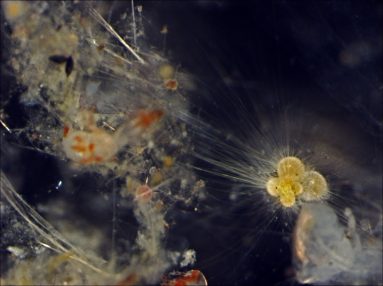Tracking Tropical Plankton
March 16, 2023

Modern plankton biodiversity in the tropics is the result of 8 million years of global cooling, according to a study led by researchers at University of Texas Institute for Geophysics published in Nature.
The finding raises concerns that rapid ocean warming could force the plankton to move away from the tropics, which would negatively affect important fish, such as tuna and billfish, and coastal communities that depend on them.
The research used a database developed by postdoctoral fellow Adam Woodhouse containing information about 500,000 microfossils gathered during 55 years of scientific ocean drilling. Woodhouse and his collaborators grouped the information and analyzed it alongside a geologic record of past climate change.
They found that the last time Earth was this warm 8 million years ago, tropical plankton populations lived in waters more than 2,000 miles from where they are today. If plankton species evacuate the equator and head poleward, the loss of diversity could trigger a cascade of extinctions like those seen in rainforests after logging and fires, Woodhouse said.
Back to the Geoscientist